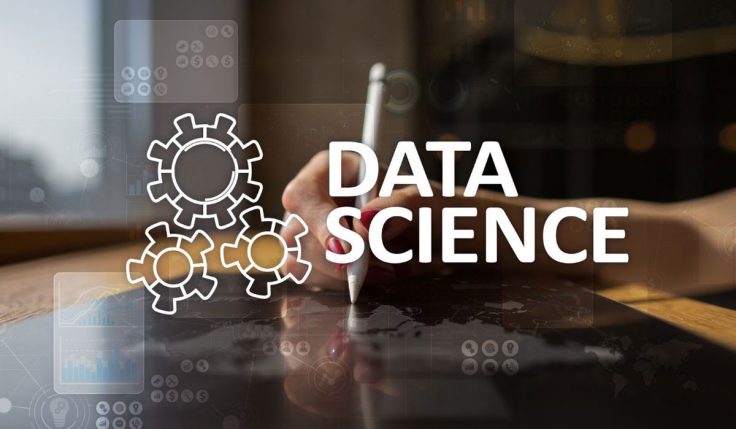Economics in Data Science plays an important role in excelling in the boardroom by offering valuable insights into market dynamics, customer behaviour, and business performance. With the integration of economic principles with data analytics, organisations can make informed decisions, optimise strategies, and drive sustainable growth.
In this blog, we will see how economics helps in the boardroom by leveraging data science to gain better insights. Here’s how economics in data science contributes to success in the boardroom:
Market Trends: Economic theories help in understanding the patterns and trends of the market. By analysing macroeconomic indicators, including GDP growth, inflation rates, and unemployment rates, businesses can anticipate changes in customer demand and adjust their strategies accordingly.
Data science techniques in economics, including time series analysis and econometric modeling allow organisations to extract actionable insights from large datasets, allowing them to stay ahead of the competition.
Segmentation and Targeting: The economic principles guide businesses in the segmentation of their target audience based on factors including income levels, preferences, and purchasing power.
Data science algorithms, including clustering and classification, help in identifying distinct customer segments and predicting their overall behaviour. By customising products and marketing strategies to specific segments, organisations can improve customer satisfaction and also maximise profitability.
Price Optimisation: Pricing decisions have a significant impact on a company’s revenue and profitability. Economic theories, including price elasticity of demand and game theory, offer frameworks for optimising prices in different market conditions.
Data-driven approaches such as price sensitivity analysis and dynamic pricing algorithms enable businesses to set optimal prices based on real-time market feedback and competitor dynamics, leading to better margins and market share.
Supply Chain Management: Economics in Data Science helps in optimizing supply chain operations by reducing costs and maximizing efficiency. With data analytics, organisations can identify bottlenecks, optimise inventory levels, and forecast demand.
The economic concepts, including economies of scale and supply-demand equilibrium, inform the decision-making process, enabling businesses to streamline the supply chain and deliver products to customers timely and cost-efficiently.
Risk Management: The economic principles guide organisations in assessing and reducing various risks, including financial, operational, and regulatory risks. Data science techniques, including predictive modelling and simulations, allow businesses to quantify and forecast risks associated with different scenarios.
After understanding the impact of various external factors on operations, organisations can develop robust risk management techniques that can help safeguard their overall financial health.
Investment and Expansion: Economics in Data Science plays an important role in guiding investment and expansion decisions. By analysing market data and economic indicators, organisations can evaluate potential returns and risks associated with investment opportunities.
Data-driven approaches help in identifying growth markets, assessing competitive landscapes, and allocating resources effectively. What’s more, economic theories, including capital budgeting and cost-benefit analysis, also provide frameworks for evaluating the viability of investment projects and optimising resource allocation.
Regulatory Compliance: Economic principles inform organisations about the regulatory environment in which operations are carried out. Data science tools also help in analysing regulatory requirements, monitoring compliance, and identifying potential risks.
By staying abreast of regulatory changes and leveraging data analytics, businesses can ensure compliance with laws and regulations while minimising legal and reputational risks.
Performance Management and Reporting: Economics in Data Science enables organisations to measure and report key performance indicators precisely. With a comprehensive analysis of financial and operational data, businesses can track their performance against strategic objectives and benchmarks.
What’s more, data visualisation techniques also help in presenting complex information clearly and concisely, facilitating decision-making processes in the boardroom.
ESG Integration: By incorporating Environmental, Social, and Governance (ESG) factors into decision-making processes, businesses can enhance sustainability and social responsibility while mitigating risks and fostering long-term value creation.
Circular Economy: Embracing the principles of the circular economy enables organisations to minimise waste, maximize resource efficiency, and create new revenue streams through product redesign, reuse, and recycling initiatives.
Integrating ESG considerations and circular economy principles into data-driven strategies empowers businesses to drive sustainable growth while contributing positively to society and the environment.
How Does a BA (Honours) Economics with Data Science Help You Become a Better Professional?
The study program for a BA (Honours) Economics WithData Science is designed to produce training in the application of knowledge in economics to real-life economic, financial, ethical, and analytical problems encountered in the economy.
The program also allows you to effectively apply the acquired knowledge and skills to situations of economic, institutional, and policy-making in governance and industry. The course is capable of offering students the opportunity to gain a traditional curriculum in economics along with advanced data analytics and data science methods.
The BA (Honours) Economics With Data Science comes with a rigorous focus on quantitative techniques and research methods, which will guide the students in dealing with economic problems with a practical and analytical approach. The comprehensive scope of the program ensures that students receive extensive experience of current issues and crises in emerging economies.
Why Study BA (Honours) Economics With Data Science?
The BA (Honours) Economics With Data Science program offers the opportunity to extend your studies by one year and graduate with a Honours degree. In the fourth year of the B.A. (Hons.) in Economics with Data Science, the students are offered three distinct options to choose from, each designed to elevate their academic and professional capabilities.
The learning outcomes of BA (Honours) Economics With Data Science are mentioned below.
- You can use data and data analytics methods to evaluate policies, understand trends in macroeconomic aggregates.
- The students can acquire the ability to identify and formulate practically relevant questions and issues in different economic aspects.
- You can master the use of statistical software used in government, industry, and academia.
- Understand the methodological foundation of analytical techniques.
Also, read this blog post: BA Economics Jobs: Navigating Career Scope & Opportunities in India
Top Reasons to Study BA (Honours) Economics With Data Science
Some of the top reasons to study BA (Honours) Economics With Data Science are mentioned below.
- Acquire specialist knowledge
- Global job opportunities
- Higher employability
- Attain superior analytical skills
- High earning potential
- Rapid job growth
- Fastest growing industry
Economics in Data Science empowers organisations to make informed decisions, optimise strategies, and drive sustainable growth in the boardroom. By using economic principles and data analytics, businesses can gain a competitive edge, enhance customer satisfaction, and maximise profitability.
If you want to learn more about integrating economics with Data Science then pursue a program such as BA (Honours)Economics With Data Science to understand complex market dynamics, mitigate risks, and capitalise on emerging opportunities in the rapidly evolving business landscape.






